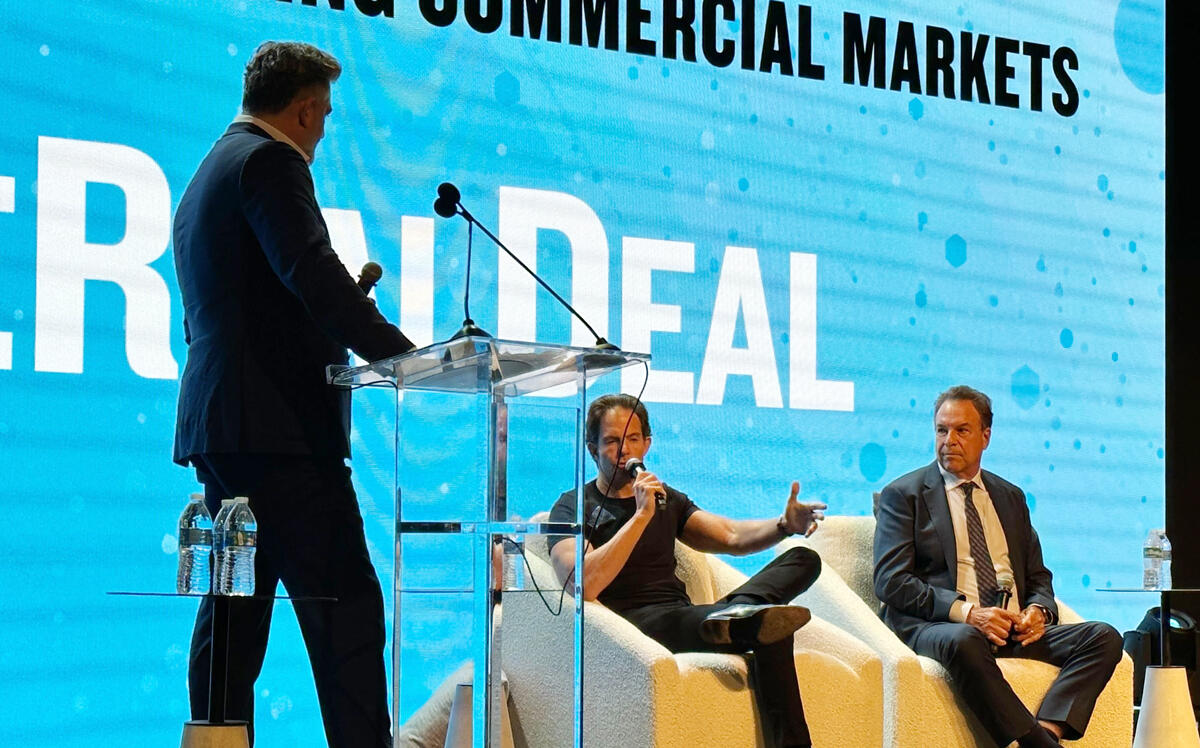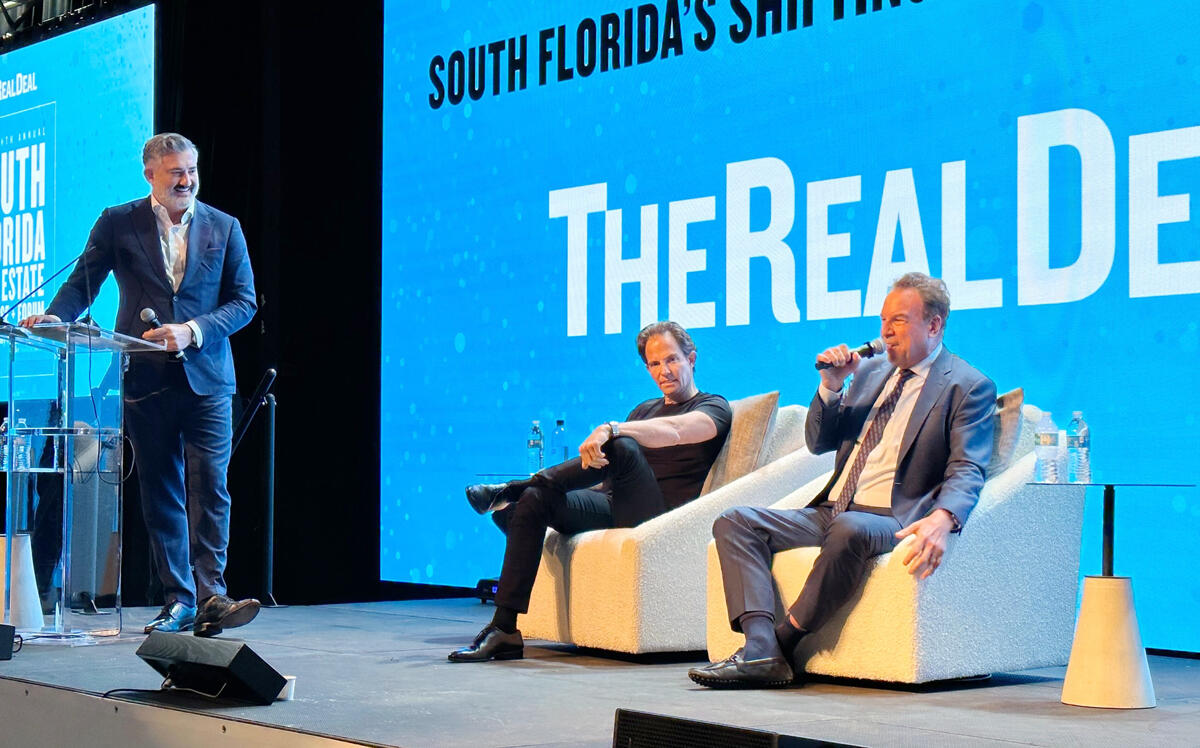The office building, once the pinnacle of commercial real estate, now feels more like a liability.
Inflation, rising interest rates and remote work have left the asset class uniquely exposed to declines in valuation. Vultures are starting to circle for distress.
But Michael Shvo still sees opportunities. The developer bought the Transamerica Pyramid in San Francisco and, according to sources, has emerged as a potential suitor for the Solow Building on 57th Street in Manhattan, which could command a record sum for a New York City office.

From left: TRD’s Amir Korangy, SHVO’s Michael Shvo and Jeff Greene
Shvo, who is backed by the German pension fund BVK, said Thursday at The Real Deal’s South Florida Showcase + Forum that he is only buying the top-of-the-line product, where demand remains strong, he said, and there is no slowdown.
“There is an enormous flight to quality,” Shvo told the audience. “Covid did something great for the office world. It made people care where they worked.”
In South Florida, Shvo is solely focused on Miami Beach, a city with few Class A office buildings and where historic preservation limits new development.
“You go down Brickell there is building after building after building,” he said. “We are developing a small, small island called Miami Beach, everything is regulated and half is historic.”
Jeff Greene, who is developing the two-tower One West Palm project in West Palm Beach, had a less optimistic take. He’s only including offices in the project, he said, because he was required to do so in order to get approvals from the city. Unlike Miami Beach, where development is restricted, West Palm has the opposite problem: near unbridled building, according to Greene.
Stephen Ross’ New York-based Related Companies has number of new office projects, including a 20-story office one in West Palm’s Rosemary Square and the planned 25-story One Flagler office building, dubbed the “hedge fund tower.” But demand for Class A space in the city remains more uncertain.

From left: TRD’s Amir Korangy, SHVO’s Michael Shvo and Jeff Greene
“I am not super bullish on office buildings at all,” said Greene. “I think we are going to have a major, major correction happen.”
Greene said he expects more distress to come to the commercial real estate sector “in the next two and five years.”
“Get as liquid as you can,” he added.
Greene said any coming downturn won’t look like the financial crisis of 15 years ago, when he made a fortune shorting subprime mortgages. But there will be challenges in commercial real estate, in part, because of rising interest rates, which make it difficult to refinance. He also noted that higher rates could force buyers to sell at lower prices.
Shvo said he is not interested in flipping and selling real estate. If he purchases the Solow building at 9 West 57th Street in New York City it could be the largest office transaction in the city’s history. The 50-story, 1.6 million-square-foot building was last appraised in July 2016 at $3.4 billion.
“I read that in The Real Deal. It was very interesting,” Shvo said. “There is no comment on that.”
